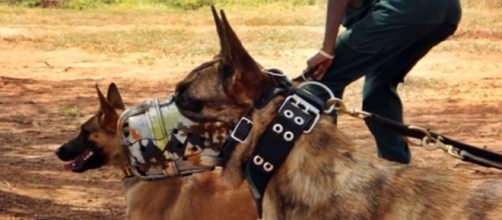Facebook searches using the keyword 'anti-poaching' pulls up results over 20 anti-poaching organizations. These organizations and groups have a total number of over eighty thousand likes. More than fifty events have been hosted or advertised through Facebook recently. In the past month, forty-six videos have been posted up around the anti-poaching theme. Countless articles, shares, and people commenting, amount to a massive sharing of knowledge, fundraising, awareness, and news surrounding the devastation of the elephants and rhinos that are so methodically being poached for their horn and ivory.
The Facebook social networking platform is an amazing anti-poaching weapon and an awareness tool that helps to reach millions in the war against poaching.
Youtube is another social networking platform that brings the plight of Africa's wildlife to millions
Recent trends on Facebook indicate that lions are now being hunted to boil down the bones which are in hot demand in Asia where they make a potion that is thought to enhance sexual performance. The shooting of Cecil the Lion in Zimbabwe was shared through Facebook to such an extent that it became a major news item. Twenty years ago it is unlikely that the death of Cecil would have gone much further than a few print media footnotes.
Via Facebook, World Rhino Day was able to advertise across the globe the different events, fundraisers and educational themes that were available.
Millions of people worldwide participated.
Africa is vast and thirty-five years ago the concept of extinction through poaching was a far off and almost unbelievable thought. There always was a certain amount of poaching in Africa but the vast numbers of wild animals in huge protected areas created the perception that animal populations were infinite. Like the possibility of running out of fossil fuels one day, the dwindling natural resources were a far off thing that did not trouble anyone overly much. Through social media platforms like Facebook, the tragedy and the sheer scale of the slaughter of animals has reached right into the lives and dwellings of millions of people across the world.
This is a boon that the internet has brought to the fight for wildlife.
Twitter, another useful platform for the anti-poaching war
Facebook is not alone as a social networking platform where millions off people can get involved in saving wildlife from poaching and trafficking.
@BBC3CR hi guys. Please get behind #RideForRhinos. 5500kms motorcycle circumnavigation of South Africa to fight Poaching. #antipoaching. pic.twitter.com/R8aFkf42aV
— Alex J Jackson (@KaapstadTours) April 12, 2017
It is through social media sharing that attention has been focused on world resources and the vast numbers of people who are now aware of the problem are able to muster collective pressure on governments to do something about the problem.
This sort of collective action was unheard of until recent times. What started out as a small site (Facebook) where students at a single university could share ideas, and just chat among themselves expanded to include thousands of colleges and schools.
In 2006 when anyone older than thirteen who had a valid email address could join up, the site simply exploded. There has been much debate about privacy, compromising photos and bullying on Facebook but that is to be expected when millions of people get together on one platform. The upside is that in cases like the anti-poaching drive, the Facebook features have become a weapon in the hands of everyday people to effectively influence change for the good of the species with which we share our planet.

